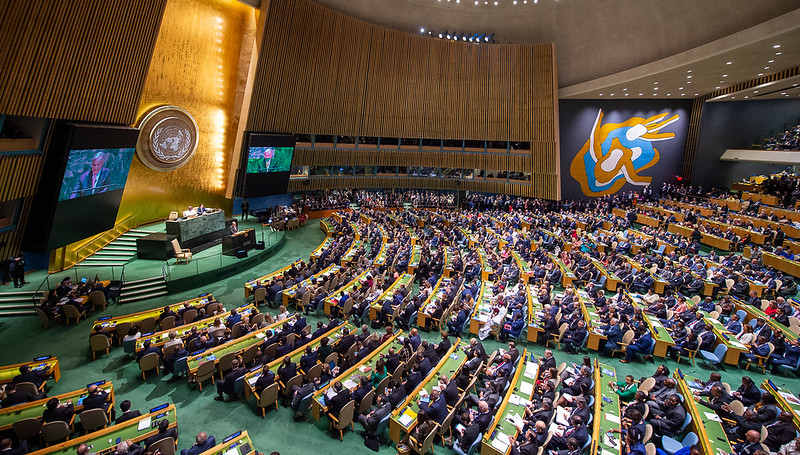FACULTY VOICES
By Sean Jacobs

In December 1972, just like this week, heads of state gathered for the annual meetings of the UN General Assembly. But unlike this week, where we’ll be inundated with platitudes at the UN, Salvador Allende, president of Chile, stepped to the mic to demand accountability from multinational corporations extracting super profits from Chile while openly colluding with the US government to overthrow him. Allende was assassinated the following year, and Chile descended into a seventeen-year dictatorship. Still, his speech resonated and had the backing of third-world countries (then assurgent), inspiring the adoption of the New International Economic Order (NIEO) in 1974 to reduce structural inequalities among nations and reorder power worldwide. The NIEO never got lift off. Its internal contradictions (its supporters included non-democratic governments, for example), economic crises, and undermining from Western governments put paid to that. There have been attempts to revive it post-COVID. On Monday, September 18th, GPIA hosted a panel discussion to mark the publication of the second edition of her book, When Misfortune Becomes Injustice: Evolving Human Rights Struggles for Health and Equality by Alicia Ely Yamin, Harvard law and public health professor. Yamin was joined by Philip Alston (professor at NYU Law School and former UN Special Rapporteur on extreme poverty and human rights from 2014 to 2020) and Jackie Dugard (senior lecturer in human rights at Columbia’s Institute for the Study of Human Rights). GPIA faculty Sakiko Fukuda-Parr organized the event. Yamin, Alston, and Fukuda-Parr have all been affiliated with the Center for Economic and Social Rights board. In her book and at the event, Yamin echoed Allende’s warnings of more than 50 years ago. That advances in human rights thinking and practice is up against neoliberalism. “Just as health and other ESC [economic, social and cultural] rights claims were being theorized and articulated, in international instruments and reformed constitutions, the potential for democratic responses to those claims was being crippled by the global embrace of neoliberalism, which encoded a series of free market-oriented reforms designed to reduce state influence in economies.” Yamin’s advice included reviving the idea that health is a human right; targeting all forms of inequality, not just poverty; focusing on how infrastructures (social protection regimes and housing, education, and health systems); and democratizing knowledge and authority related to health matters. I doubt the heads of state gathering at the UN will heed this advice.